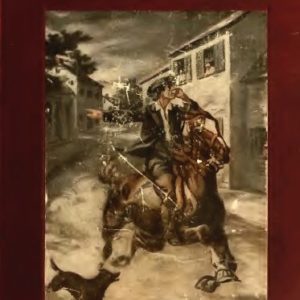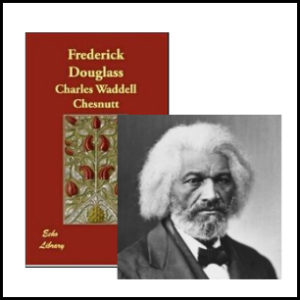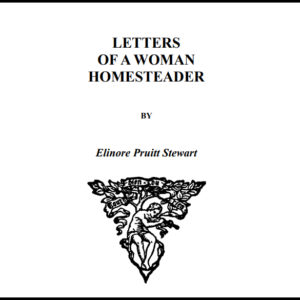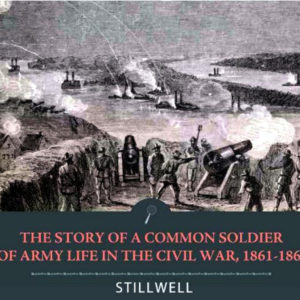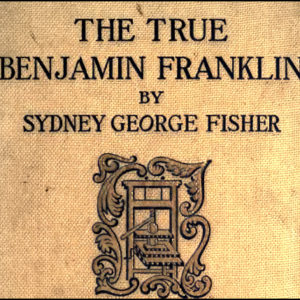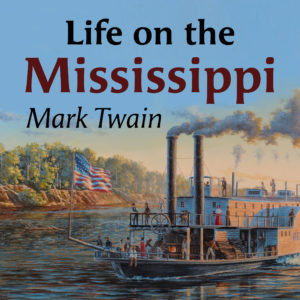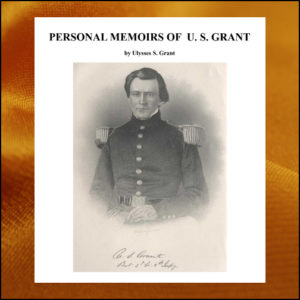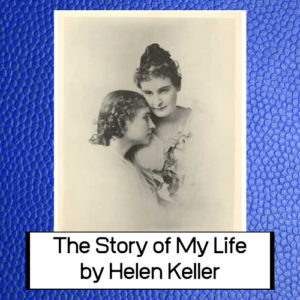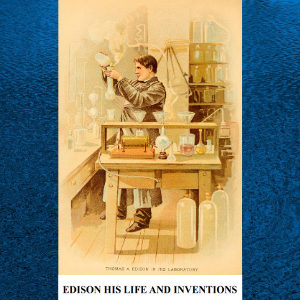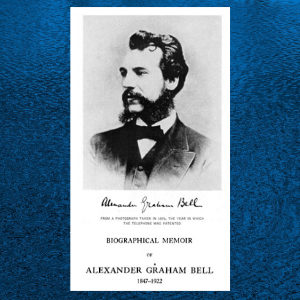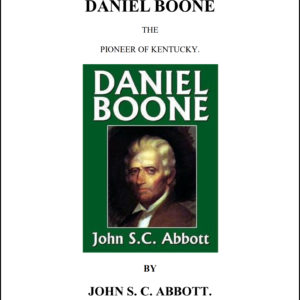Category: Biographical
- Home
- /
- Shop
- /
- By Subject
- /
- Language Arts
- /
- Reading
- /
- Literature
- /
- 9th-12th
- /
- Non-Fiction
- /
- Biographical
Showing all 12 resultsSorted by latest
-
$2.50Buy Now
Excerpt from this downloadable pdf book – Paul Revere: The Torch Bearer of the Revolution
It has been Wisely said that Time must lay a finger on events to make them into history. The further away we stand from certain pictures, the more distinct they appear. The events we read of in today’s newspaper are not history, but twenty years, or fifty, or a century hence, our descendants will pore over the musty, dusty files, and history will be born. Paul Revere never imagined that he was living in an epoch – making period; yet the story of his eventful life holds a fascination of its own, appealing strongly to the interest of readers, old and young. He stood for so much in the history of our country in those stirring Revolutionary times, that we cannot lightly pass over the many services he rendered to the cause of Liberty.
-
$2.50Buy Now
This 42 page book is a biography of Frederick Douglass. Frederick Douglass was an American social reformer, abolitionist, orator, writer, and statesman. After escaping from slavery in Maryland, he became a national leader of the abolitionist movement in Massachusetts and New York, gaining note for his oratory and incisive antislavery writings.
-
$2.00Buy Now
This is a downloadable copy of the book.
About the book: The writer of the following letters which comprise this book is a young woman who lost her husband in a railroad accident and went to Denver to seek support for herself and her two-year-old daughter, Jerrine. Turning her hand to the nearest work, she went out by the day to work as a house cleaner and laundress. Later, seeking to better herself, she accepted employment as a housekeeper for a well-to-do Scottish cattleman, Mr. Stewart, who had taken up a quarter-section in Wyoming. The letters, written through several years to a former employer in Denver, tell of her new life in the new country. They are genuine letters, and are printed as written, except for occasional omissions and alterations of names. The letters begin in 1909, apparently right after a homestead act made it possible for the author, Elinore Pruitt Stewart, to claim a homestead of 160 acres in Wyoming. Ms. Stewart is a very resourceful woman as well as a wonderful story-teller. -
$3.00Buy Now
Leander Stillwell was typical of thousands of Northern boys who answered President Lincoln’s call for volunteers. In January 1862, only a few months past his 18th birthday, and only after he and his father had sowed the wheat, gathered the corn and cut the winter firewood, Stillwell left his family’s log cabin in the Jersey County backwoods of western Illinois and enlisted in Company D of the 61st Illinois Infantry Regiment. For three and a half years he served in the Western theater of operations as a noncommissioned officer before being mustered out as a lieutenant in September 1865. His first—and biggest—battle, Shiloh, was the one he remembered most vividly. He also took part in skirmishes in Tennessee and Arkansas, as well as the Siege of Vicksburg. In The Story of a Common Soldier Stillwell tells of his Army experiences, as critic H. L. Mencken observed admiringly in a review, “in plain, straightforward American, naked and unashamed, without any of the customary strutting and bawling.” Small for his age and given to taking solitary walks in the woods beyond the picket lines, Stillwell was nevertheless an enthusiastic and obedient soldier. “Just a little mortifying,” was Stillwell’s reaction when his regiment missed two battles because it had been left to guard a town in Tennessee. But, he hastened to add, “the common soldier can only obey orders, and stay where he is put, and doubtless it was all for the best.”
-
$3.50Buy Now
This is a downloadable copy of the book. (442 page download)
About the book: Benjamin Franklin excelled in the roles of diplomat, postmaster, political theorist, scientist, satirist, and musician, and yet we still know so little about his life. Fellow Philadelphian George Fisher wrote this biography in 1898—illustrated here with black and white images throughout—and it depicts a Ben Franklin not seen in other portraits of the man. Following him from his boyhood, when he first wrote articles for his brother’s Boston paper, to his years as a statesman and inventor, Fisher also deals with Franklin’s political intrigues with the British and French, as well as his illegitimate children, offering a unique perspective of this most fascinating American figure. -
$3.00Buy Now
This is a downloadable copy of the book. (558 pages)
About the book: Life on the Mississippi, memoir of the steamboat era on the Mississippi River before the American Civil War by Mark Twain, published in 1883.The book begins with a brief history of the river from its discovery by Hernando de Soto in 1541. Chapters 4–22 describe Twain’s career as a Mississippi steamboat pilot, the fulfillment of a childhood dream. The second half of Life on the Mississippi tells of Twain’s return, many years after, to travel the river from St. Louis to New Orleans. By then the competition from railroads had made steamboats passé, in spite of improvements in navigation and boat construction. Twain observes new, large cities on the river
-
$3.00Buy Now
This is a downloadable copy of the book. (548 pages)
About the book: Completed just days before his death and hailed by Mark Twain as “the most remarkable work of its kind since the Commentaries of Julius Caesar,” this is the now-legendary autobiography of ULYSSES SIMPSON GRANT (1822-1885), 18th president of the United States and the Union general who led the North to victory in the Civil War. Though Grant opens with tales of his boyhood, his education at West Point, and his early military career in the Mexican-American war of the 1840s, it is Grant’s intimate observations on the conduct of the Civil War, which make up the bulk of the work, that have made this required reading for history students, military strategists, and Civil War buffs alike. This unabridged edition features all the material that was originally published in two volumes in 1885 and 1886, including maps, illustrations, and the text of Grant’s July 1865 report to Washington on the state of the armies under his command. -
$3.00Buy Now
This is a downloadable copy of the book. (Large download – 527 pages)
About the book: With Helen Keller’s Letters (1887-1901) and a Supplementary Account of Her Education, Including Passages From the Reports and Letters of Her Teacher, Anne Mansfield Sullivan -
$3.00Buy Now
This is a downloadable copy of the book. (427 pages)
About the book: Thomas Alva Edison (February 11, 1847 – October 18, 1931) was an American inventor, scientist, and businessman who developed many devices that greatly influenced life around the world, including the phonograph, the motion picture camera, the stock ticker, electric power, recorded music, the mechanical vote recorder and the light bulb, among many others. This biography discusses many facets of Edison’s life such as his boyhood years in Port Huron, Michigan, his time as a young telegraph operator, his time working and inventing in Boston, his inventing of the stock ticker, the phonograph, the telephone, the microphone, and the light bulb. You will learn of his world wide search for a supply of filament, and many details of his life not covered in other works of his life. -
$2.50Buy Now
This is a downloadable copy of the book. (55 pages)
About the book: Out of print for over a century, The World I Live In is Helen Keller’s most personal and intellectually adventurous work—one that transforms our appreciation of her extraordinary achievements. Here this preternaturally gifted deaf and blind young woman closely describes her sensations and the workings of her imagination, while making the pro-vocative argument that the whole spectrum of the senses lies open to her through the medium of language. Standing in the line of the works of Emerson and Thoreau, The World I Live In is a profoundly suggestive exercise in self-invention, and a true, rediscovered classic of American literature. -
$2.00Buy Now
This is a downloadable copy of the book. (30 pages)
Excerpt from the book: Alexander Graham Bell – teacher, scientist, inventor, gentleman – was one whose life was devoted to the benefit of mankind with unusual success. Known throughout the world as the inventor of the telephone, he also made other inventions and scientific discovers of first importance, greatly advanced the methods and practices for teach the deaf and came to be admired and loved throughout the world for his accuracy of thought and expression.
-
$2.50Buy Now
Daniel Boone is regarded as the first real American folk hero. Without his cunning bravery, settlement west of the Appalachians may not have been made possible for years. Boone’s Wilderness Road, which is still used today, helped bridge the Cumberland Gap, granting access to the state of Kentucky from Pennsylvania.
Thanks to the writing of John S. C. Abbot, the life and genius of Boone can truly be appreciated through Daniel Boone: The Pioneer of Kentucky. Find out just how Boone crafted his Wilderness Trail, what he did to make it happen, and how he overcame the struggles of life in late eighteenth century America.


